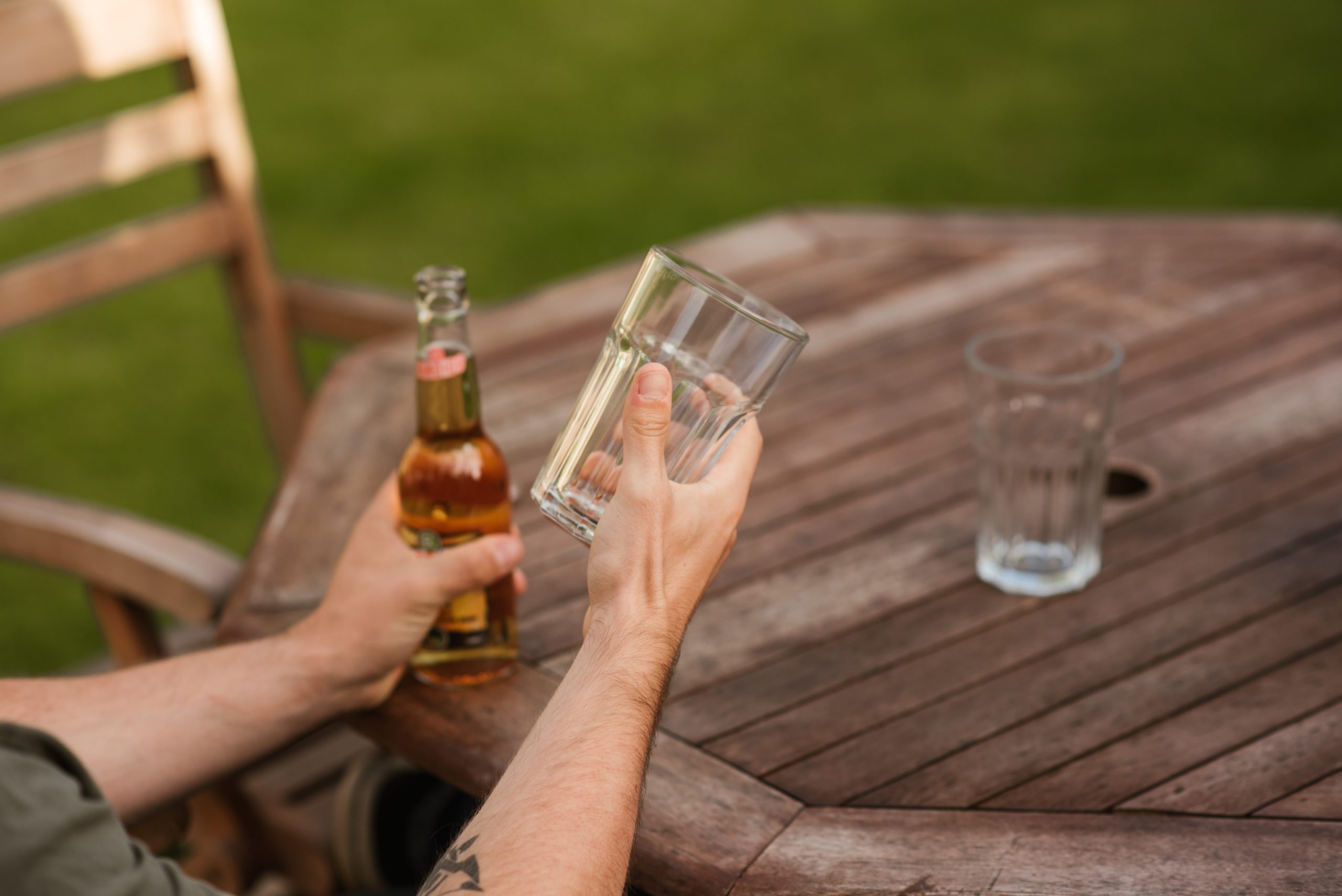
Alcohol often plays a direct role in the development or effects of mental health disorders, such as anxiety. There are many questions about how alcohol affects anxiety. If a person is suffering from co-occurring disorders of alcoholism and anxiety, it is best to seek simultaneous treatment for both disorders. Reach out to us today to learn more about potential treatment options in your area.
As a person drinks alcohol, they are changing the ways in which the brain functions and sends signals to the body. Alcohol decreases the levels of serotonin in the brain. Serotonin is a neurotransmitter that plays a major role in feeling happy, joyous, and mood stabilization.
Although anxiety may decrease in the early stages of drinking, alcohol can cause anxiety to worsen as the alcohol begins to wear off. As a person sobers up, they may experience alcohol-induced anxiety due to the reduced amount of serotonin in their body. These results may not easily be noticed during drinking, as the other effects of alcohol cover up these feelings. As those effects wear off, however, anxiety takes over. Alcohol-induced anxiety may last for a few hours or even the entirety of the next day. This can make it difficult for some to fall asleep after a night of drinking.
Alcohol usually causes anxiety in short-term bursts. However, if a person consumes significant amounts of alcohol regularly, they might begin to experience permanent changes in neurotransmitter levels, leading to more anxiety.
The question of if alcohol helps anxiety can be a complex one. Many people use alcohol to decrease nerves, especially in social situations. If a person suffers from social anxiety, they may turn to alcohol as “liquid courage” because it has the reputation to make a person more outgoing. This does work as well, at least when done in moderation.
The problem is that as a person relies more on alcohol to feel comfortable, they may be risking the development of a dependence or addiction issue. Nearly 20% of people with social anxiety disorders also suffer from alcohol dependence. As a person grows reliant on alcohol, they may notice that they do not feel the desired effects as easily anymore and are pushed to drink in larger amounts to chase the relaxed feeling they seek. Over time, this can lead to a dangerous addiction and only make the symptoms associated with anxiety worse.
Many anti-anxiety medications can have serious reactions when combined with alcohol. Anxiety medication often has side effects associated with the central nervous system. Because alcohol is also a depressant drug that affects the central nervous system, the combination of these drugs can overload the body and cause harmful side effects.
It is possible to overdose on a combination of alcohol and anti-anxiety medication. Because the medications have similar effects on the body, a person may overload their system with a combination of the drugs.
Possible examples of side effects caused by mixing alcohol and anti-anxiety medication include:
According to the National Survey on Drug Use and Health, approximately 9.2 million adults in 2018 were diagnosed with dual diagnoses. Addiction and mental health are deeply interrelated. Those with alcohol use disorder are at an increased risk of experiencing mental illness. Many individuals with mental disorders are also drawn to drink alcohol to self-medicate, leading to dependence and ultimately addiction. Treatment programs must work individually with dual-diagnosis individuals to treat their underlying mental health conditions if any progress is made in addressing their alcohol use disorder.
Dual diagnosis works by treating both the substance abuse issue and mental health disorder simultaneously. In this case, a person would be receiving treatment for alcoholism as well as their depression. Often, if a person enters treatment for a substance abuse issue without taking the time to work on mental health, they risk their long-term sobriety. People who receive dual-diagnosis treatment are far less likely to relapse than those who enter treatment only for substance abuse who do not receive treatment for their mental health disorders.
If you or a loved one has a substance use disorder and struggles with other psychiatric conditions, it is vital to get help as soon as possible. Recovery is more likely to be successful in the long term if professional medical assistance is sought early. At Create Recovery Center, we know that this is a big step to take, and no matter where you are on your road to recovery, our dedicated team is here to help you meet your goals.
We will guide you to the suitable treatment options for a dual diagnosis and offer a robust support system and resources to help you succeed in your recovery. For more information, reach out to Create Recovery today!
